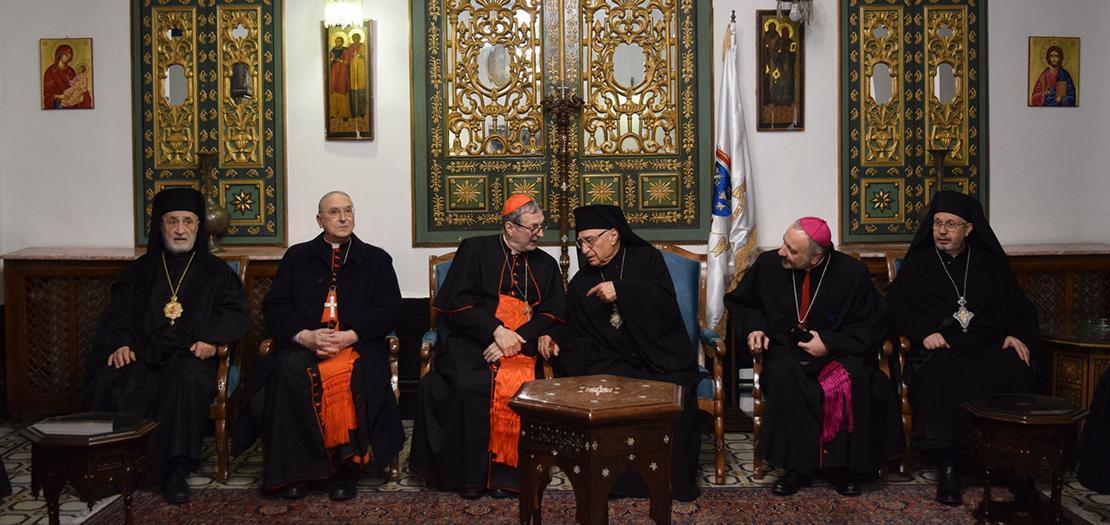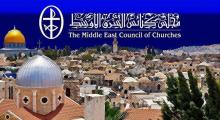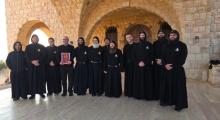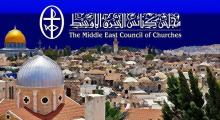Issued by the Catholic Center for Studies and Media - Jordan. Editor-in-chief Fr. Rif'at Bader - موقع أبونا abouna.org

Cardinal Claudio Guggerotti, arrived in Damascus on Friday, where he has been sent by Pope Francis to convey his closeness to the Catholic community in Syria.
The the Prefect of the Dicastery for the Eastern Churches, who stopped in Beirut , Lebanon, on Thursday, will stay in Syria until January 29.
He shared with Vatican Media his hope that the now calmer situation in Lebanon, which recently elected a new president ending over two years of presidential vacuum, may soon extend to Syria.
Hope for stability in Syria
As the Prefect recalled, Syria and Lebanon are two neighboring countries with historically "fluctuating" relations, that share an intertwined destiny. What is important now, he noted, "is that a large number of Syrians who took refuge in Lebanon begin to consider returning to Syria if the situation stabilizes."
He also remarked that "the Maronite Church, which originated in the mountains of Syria but later settled here (Lebanon) is also present in Syria, creating a strong connection between the two countries."
In Lebanon the situation is a lot calmer now and the hope is that “this calm can extend to the other side of the border. albeit in a different way and for different reasons.”
The Italian UNIFIL contingent in Lebanon
On Thursday, Cardinal Gugerotti met with Monsignor Santo Marcianò, the Italian Military Ordinary, at Beirut Airport. He was welcomed by top-ranking Italian military authorities and visited Italian soldiers of the UNIFIL contingent, the United Nations peacekeeping force operating in southern Lebanon. This visit coincided with the eve of the 60-day deadline established by the ceasefire agreement signed on November 27 between Israel and Hezbollah.
Working for the common good
What stood out to the Cardinal was their description of how challenging this experience has been for the Italian contingent, “both for the bombings they endured and the fact that, for many days, they had to live in bunkers because the situation during the clashes between Israel and Hezbollah was extremely dangerous.”
The Prefect showed interest for the detailed accounts of their experiences, particularly regarding “the so-called buried weapons in tunnels and their mission, which, despite having clear limitations, could not always meet the immediate needs of the situation because intervention was not always possible.”
The visit provided an opportunity “to see how the Italian troops contributed significantly to fulfilling their duties, despite facing considerable hardships.” Reflecting on this, Cardinal Gugerotti noted that “It is in such cases that one perceives a sense of concern for the common good, which must be emphasized and appreciated.”







